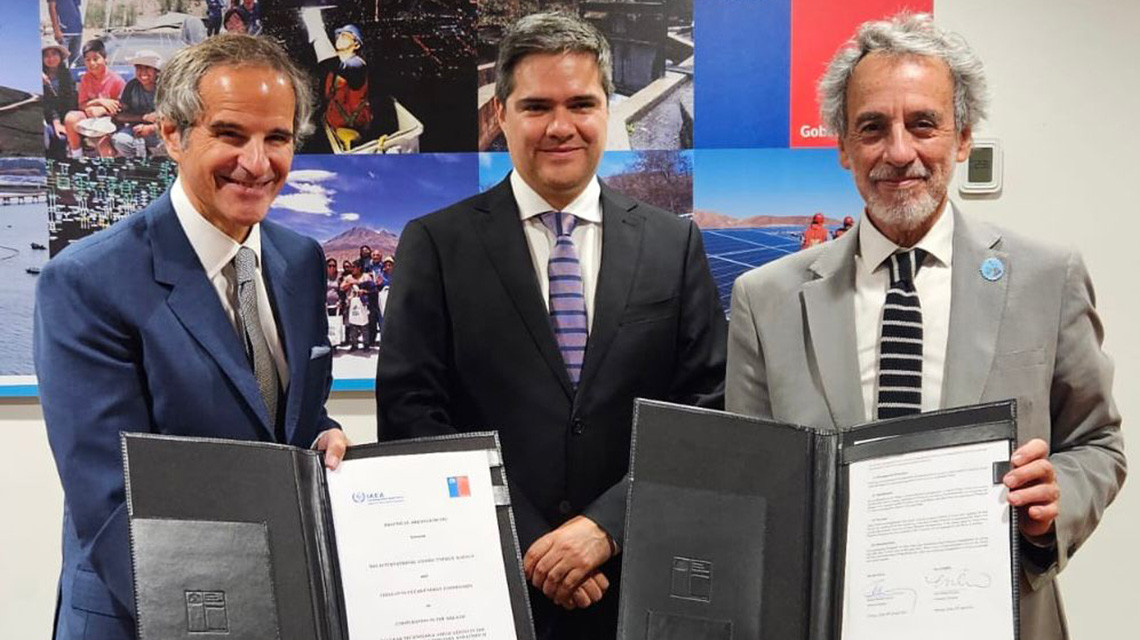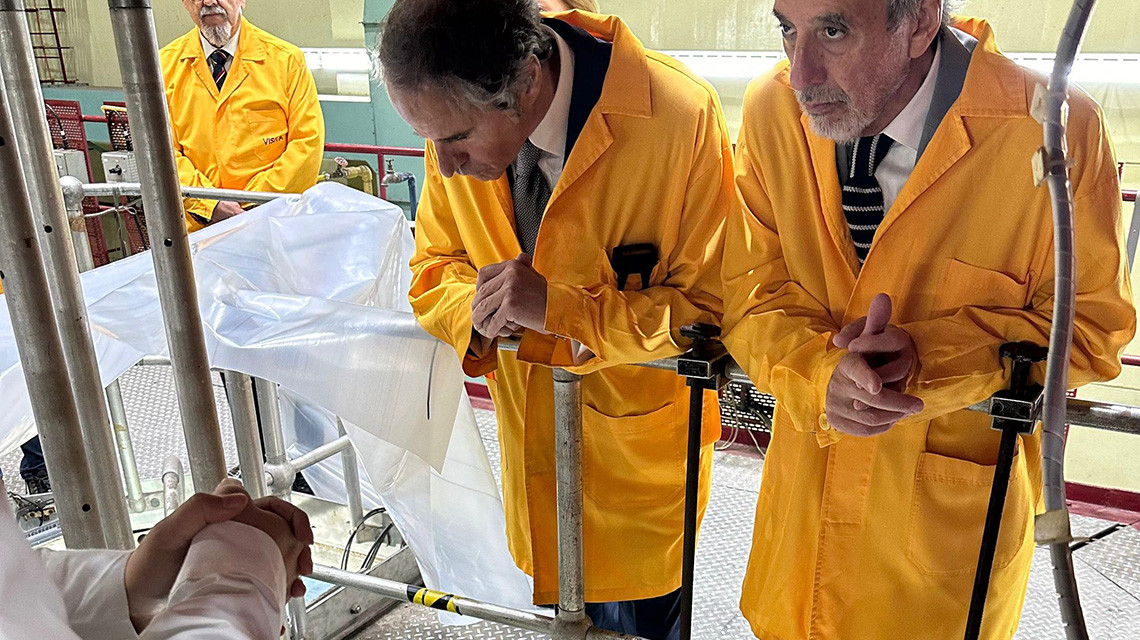The IAEA and the Government of Chile have signed an agreement to strengthen cooperation to tackle microplastic pollution in Antarctica. The IAEA also signed the first ever agreement on nuclear technology and lithium. IAEA Director General Rafael Mariano Grossi and Chile’s Foreign Minister Alberto van Klaveren signed the Memorandum of Understanding under the IAEA’s flagship NUTEC Plastics initiative on Tuesday.
Mr Grossi also signed an agreement related to lithium mining with Luis Huerta of the Chilean Nuclear Energy Commission (CCHEN) and witnessed by Chile’s Energy Undersecretary Luis Felipe Ramos. This agreement is aimed at harnessing nuclear technology to enhance lithium mining and paves the way for wider regional support from the IAEA. Lithium has applications in fusion and energy sectors.









